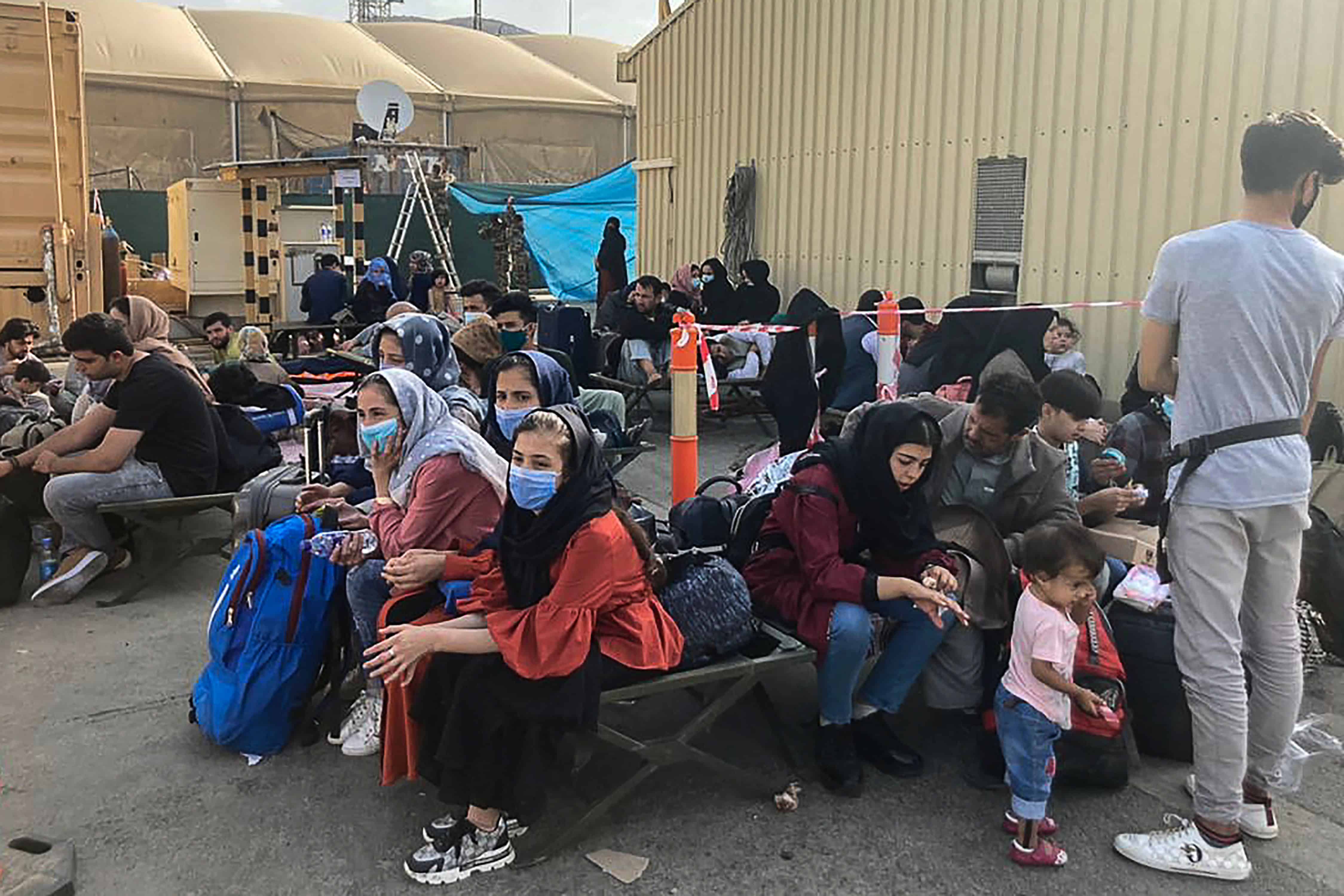US officials in the United Arab Emirates met with Afghans after a protest in Abu Dhabi this week and discussed their “potential” transfer to the United States, an embassy statement said.
The UAE was one of several Arab Gulf countries that assisted with the evacuation of Afghans fleeing the Taliban after the group seized power in August last year following a US military withdrawal.
Videos circulating on social media this week showed Afghan men protesting in the Emirates Humanitarian City in the capital Abu Dhabi, where many who were evacuated to the UAE now live.
The US embassy said that it was aware of the “peaceful demonstration” to express “concerns about future resettlement and processing for onward travel”.
US officials had met some of the Afghans and discussed their “processing for potential entry in the United States”, according to a statement sent to AFP on Saturday.
“We continue to conduct the screening and vetting of vulnerable Afghans prior to their arrival in the United States, consistent with the dual goals of protecting national security and providing protection for vulnerable Afghans,” it added.
The Taliban takeover of Afghanistan sparked a chaotic exit for the Americans and their allies after 20 years in the country, and an exodus of Afghans fearing a return to the brutal regime of 1996 to 2001 when the group was first in power.
The Taliban have promised a softer rule and are under pressure from the international community to respect human rights as they engage in talks to secure aid.
But they have also cracked down on dissent, and provincial authorities have imposed restrictions on women, issuing guidelines on how they should live.
The UAE was one of only three countries to recognize the previous Taliban rule.








